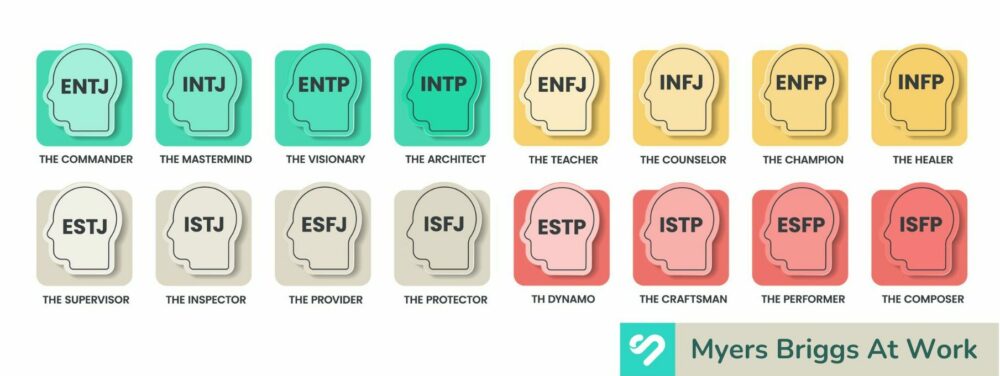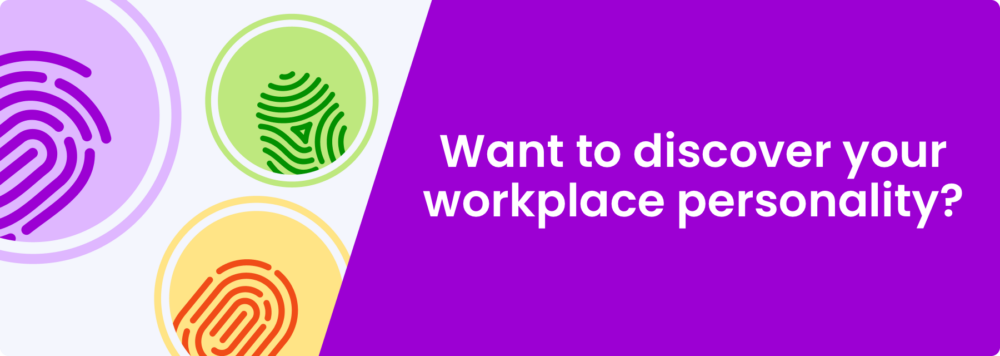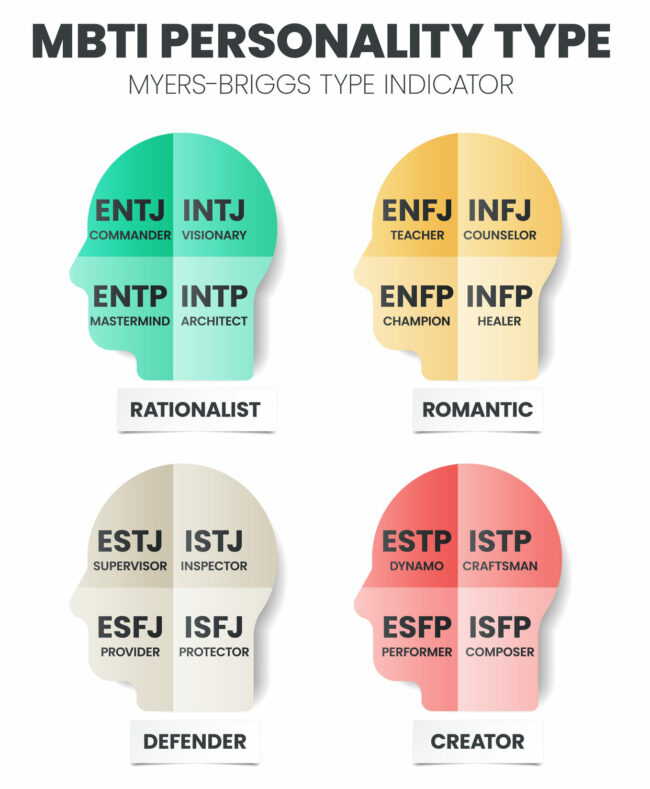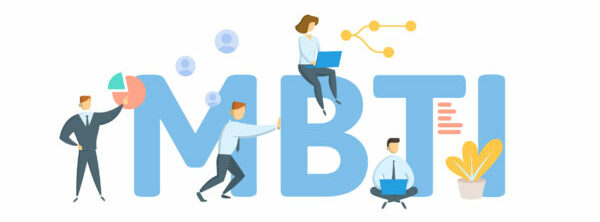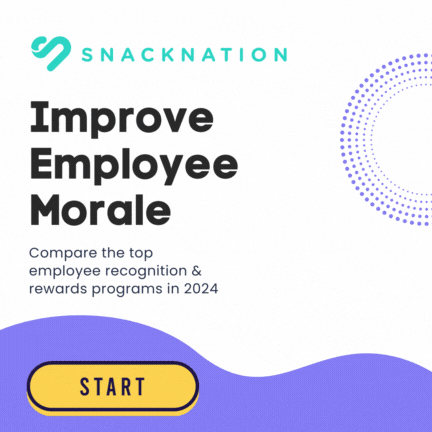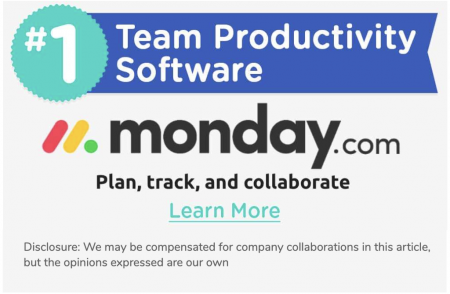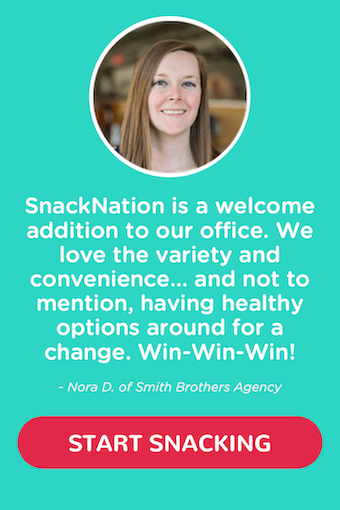Have you ever looked around at your colleagues and recognized the eclectic variety of styles, energies, and personalities?
The ways that each of us handles pressure, gratitude, success, leadership, criticism, and so much more, differ from person to person.
Obviously, we could just say that people do ‘people’ things, and let it go. But where’s the fun in that? What if we want to know why?
Why do some people become firefighters and others, librarians? Why are some people obsessively organized and others are most productive in chaos? What is it about those who can walk into a room and everyone takes notice?
Why?
There are many attributes that make us unique, but one invisible key driver is our individual Myers-Briggs personality type (MBPT).
Since the word “personality” is in fact, personal, you may be wondering how any of this matters in a professional setting.
As one of the world’s leading professional resources, Indeed believes that,
“Understanding personality types in the workplace helps you place your employees into the correct roles and give everyone tasks that fit their strengths. You can also facilitate deeper relationships between team members and integrate new employees easier.”
If you’re thinking it sounds cumbersome and time consuming to learn all this new information, this is your lucky day! We’ve dissected each of the 16 unique Myers-Briggs personality types to help you better identify with your employees and manage your teams more effectively. So, let’s dig in!
Hey! Are you looking to upgrade your employee recognition program?
In just a few minutes, you can discover your unique workplace personality for FREE and unlock insights into the types of recognition that matter most to you (and your team).
With RecognitionDNA, we can stop wasting $$$ rewarding employees in ways that don’t matter, and start recognizing them in ways they will actually care about.
What is the Myers-Briggs Personality Test?
The MBTI is a personality assessment designed in the early 20th century by the mother-daughter team of Katharine Briggs and Isabel Briggs Myers. Their conception was influenced by a book on psychological theories by Carl Jung, published in 1921.
The MBTI is intended to offer a psychological explanation for some of the human behaviors and preferences that set us apart.
It offers structure and insight into the seemingly random and unique things that make us different while proving the consistency of these traits within each personality type.
With a simple test, anyone can find out their MBPT, based on a combination of the 4 main dichotomies:
1️⃣ extroversion vs introversion
2️⃣ sensing vs intuition
3️⃣ thinking vs feeling
4️⃣ judging vs perceiving
The various combinations of each leading trait make up the 16 Myers-Briggs personality types. It’s intended to provide a deeper understanding of who we are at the core and how each type operates best in life, at work, in relationships, and in general.
How does MBTI At Work impact employees?
It’s quite fascinating when you think about it. Understanding how your employees and coworkers think and process information can make working together so much easier. When you’re able to approach and address others with the right formula based on their unique personality type, your interactions, communication, and overall working experience are positively affected.
Benefits of using the MBTI In the Workplace
✅ Improves communication
Our personality type directly feeds our communication style. And communication is essential for any kind of effective exchange of information. Some people need all the details, while others are only interested in a bullet-pointed list of the facts. Knowing these idiosyncrasies can save everyone a TON of time, energy, and frustration while improving employee engagement and the flow of communication.
✅ Eliminates conflict
90% of conflicts are caused by miscommunication. You read that right. NINETY PERCENT! Understanding how to communicate with your coworkers – correction – when everyone understands how to communicate with each other, your conflicts could be canceled quicker than some of Hollywood’s hottest names. Seriously though… can you even imagine the difference in your work environment if almost ALL your workplace conflicts were eliminated?
✅ Highlights employees’ strengths
Believe it or not, some people still don’t know their own strengths. Others may be trying so hard in a role that’s not actually meant for them. Each of the 16 personality types has its own distinct specialty but if it’s never revealed, it certainly can’t be nurtured. Highlighting the advantages of each MBPT allows you to put the right people in the right roles for the most successful team management.
Tip! Find your personalized workplace personality to learn more about recognizing employees.
👉 Take the FREE assessment here to learn your recognition personality.
What are the Myers-Briggs Personality Types?
There are 16 distinct MBTI personality types based on the four dichotomies above:
1) ISTJ – The Inspector
Described as formal, introverted, and serious, ISTJs rely more on logic and less on emotion. They’re actually quite common in the general population and considered stable and grounded vs flashy and showy. Their circles are small and they tend to lean heavily into facts and structure and away from creativity and concepts. There’s a heavy emphasis on integrity and they value organization and hierarchy.
2) INFJ – The Counselor
Possibly the rarest of all the personality types, INFJs only make up 2% of the population. These are the “diggers.” Highly insightful introverts, always seeking a deeper understanding beyond the surface explanations. They’re also the most likely to act as the mediators of your team – diplomatic, neutral, and non-combative.
3) INTJ – The Mastermind
Also one of the rarer types, INTJs are your strategists. They’re innovative, analytical, and solution-driven. The quiet planners and problem-solving masters thrive inside structures and systems. But they don’t care to rely on information from others and instead, prefer to perform their own analyses and derive their own conclusions.
4) ENFJ – The Giver
Often known as “people-centered” or “people pleasers,” they’re led by intuition and feelings. Heavy on imagination and future thinking – light on facts and present tense. Their superpowers are being empathetic and in tune with other peoples’ feelings, and they find success in roles that allow them to empower and encourage others.
5) ISTP – The Craftsman
This group is logical and rational, almost to a fault. Interestingly enough, they’re also incredibly flexible and appreciate a more spur-of-the-moment environment. It’s not uncommon for ISTPs to be physically and technically gifted and they can be pretty handy around the house too.
6) ESFJ -The Provider
The caregivers of the group, these folks encourage others to do better and prefer to live in the moment. They’re very community-focused and holistically influenced by those around them. Yet, when it comes to decision-making, they have a tendency to go with their gut. At the core, they’re extroverts who focus on the good in people and crave acceptance and approval from others.
7) INFP – The Idealist
Another rarity within the 16 personality types, INFPs are quiet empaths who seek deep conversations and relationships. They’re dedicated to being exactly who they are and need to connect with their bigger purpose in order to truly find peace and success. There’s a strong commitment to generally making the world a better place, one moment at a time.
8) ESFP – The Performer
Living life as an entertainer in some way is absolutely necessary for this personality type. Not so much on the big stage or screen but they’re artistic and creative so they’re openly passionate about the people and things they care about. ESFPs crave experience and the spotlight and have their own flair that uplifts people around them with an entirely unique kind of energy.
9) ENFP – The Champion
When asked to think outside the box, an ENFP’s first question is “What box?” Their approachable, fun-loving, and nonjudgmental vibe is actually their way of connecting with others. They draw people to them and their light. Having genuine conversations and building fulfilling relationships is what makes them tick.
10) ESTP – The Doer
One of the riskier personality types, this group tends to ask for forgiveness rather than permission as they blaze their way through life. They find formal education a bit challenging and prefer to learn on-the-fly in a more hands-on arena. As for the rules… PFFFF! Rules were made to be broken! Their entrepreneurial spirit can often be misread as insubordinate, so they have to focus their energy and use their free-thinking methods to remain constructive.
11) ESTJ – The Supervisor
Although only about 8.7% of the US population are ESTJs, these are your leaders and crusaders. They have very strong feelings about right and wrong and tend to take equally strong action for causes they believe in. Big names like Judy Sheindlin (aka “Judge Judy”), Colin Powell, and Vince Lombardi fall into this personality type category, and have been dubbed the “classic image of a model citizen.”
12) ENTJ – The Commander
Walking into a room and commanding attention isn’t a personality trait we all possess. However, that kind of rare and unspoken respect is exactly what we see in ENTJs. They’re charming and charismatic but not in a creepy or gimmicky kind of way. They have a keen eye for the talents of others and revel in positions of authority. A good challenge is always welcome because they believe in their capabilities above all else.
13) INTP – The Thinker
There’s no “off button” for their minds and they’re eternally curious. INTPs can easily identify the missing pieces in a process or the stutters in a pattern and can be somewhat of a human lie detector. They’re friendly and enjoy intelligent conversation but burn out quickly from interacting with others and prefer to reset their systems in solitude.
14) ISFJ – The Nurturer
The Nurtures take care of pretty much everyone. They take their morale-boosting responsibilities very seriously and they’re one of the most reliable groups on the list. ISFJs typically show up on time, meet their deadlines, remember all the birthdays, and make sure that everyone’s special moments are celebrated. The “Office Moms.” They have great people and social skills but don’t like to be in the spotlight so they tend to tuck themselves quietly behind the curtain.
15) ENTP – The Visionary
When the status quo is being challenged, there’s likely an ENTP at the helm. Slightly rebellious, they can be misinterpreted as combative or disagreeable, but they’re actually more interested in deliberating on alternative options. These are not the quiet, compliant, rule-followers. They’re the debaters of the group. The ones who question the norms, push for wider scopes and bigger thinking. And they refuse to conform because they know the best answers aren’t always the obvious ones.
16) ISFP – The Composer
This group knows they’re unique and they wear it with vivid pride. They often have an eclectic range of interests and hobbies and are generally curious individuals. Even when they’re living their best life, their humility shines brighter. They walk through life with extreme tolerance and an element of openness that attracts people to them. But time alone to reconnect with their real selves is an absolute necessity.
How to work with all the Myers-Briggs personality types
1 – Have everyone take the MBTI test.
If you have 16 team members, you could very well be working amidst a medley of 16 different personality types. It’s believed that our core personality type doesn’t change so even if they’ve taken the MBTI previously, starting with a current baseline gives you a fresh and even perspective on each individual.
2 – Understand “who” you’re dealing with.
Understanding your colleagues on a deeper level offers profound insight into how to best work with them. When you know how people receive information, it’s so much easier to motivate and collaborate with them.
3 – Adjust your communication style.
You can’t get caught up in the mundane details with a coworker who’s only interested in the facts. And vice versa, you can’t offer the bare-bones basics to a colleague who needs a more in-depth explanation to carry out their responsibilities successfully. Adapting your communication style to best suit the personality type you’re dealing with eliminates the gray areas and keeps things flowing smoothly.
4 – Feed their strengths.
Each personality type is exceptional in different ways. But they can’t all be ‘the best’ at the same things, right? Identifying their individual strengths and boosting their awareness of these skills builds confidence and fuels motivation.
5 – Identify opportunities for improvement.
Otherwise known as “weaknesses,” these are more like professional deficiencies. Figuring out where your gaps may be concerning training and mentorship can help get everyone a little closer to being on the same proficiency level. Still… not weaknesses. Simply, opportunities to continuously improve the work environment from the inside out.
Conclusion
Each day, people shuffle to work, carrying a backpack, briefcase, documents, a million dollars in large bills, or whatever it is that we schlep back and forth. We leave our homes, shoving these important “things” into some sort of totable carry-all, and head off to our respective jobs.
But there’s something else we carry with us. Something that doesn’t fit in a bag or briefcase. It’s US. Our “ness.” Our wonderfully distinct, quirky, and exclusive personality. Getting to know your employees and coworkers from the MBTI angle offers a whole new perspective on how to most effectively communicate and work with each of them.
People Also Ask These Questions About Myers Briggs At Work
Q: Why is it important to know the different Myers-Briggs personality types for the workplace?
- A: It is important to know the different Myers Briggs personality types for the workplace because you can manage and collaborate more effectively with people when you know how they operate. This insight gives you a roadmap of how to work with each individual, where you can best support them, and how to effectively approach team-building.
Q: How can Myers Briggs be used in the workplace?
- A: In the workplace, Myers Briggs can be used to assess the employees and understand their individual patterns and ways of working. This helps you create the most effective teams, promote the best candidates, and offer support where it’s needed most. You can easily use this information to assess your company culture, employee engagement, and recognition program. Inadvertently, gaining a better understanding and improving communication will also boost morale and increase retention.
Q: How to use the MBTI at work?
- A: You can use the MBTI at work to get a baseline on your employees and apply the best practices when working with each one. Becoming more adaptable to the individual rather than their role offers big-picture improvements.
Q: What does the MBTI stand for?
- A: MBTI stands for Myers Briggs Type Indicator. This is a simple personality assessment questionnaire that identifies your specific Myers-Briggs Personality Type (MBPT).
Tip! Find your personalized workplace personality to learn more about recognizing employees.
👉 Take the FREE assessment here to learn your recognition personality.

